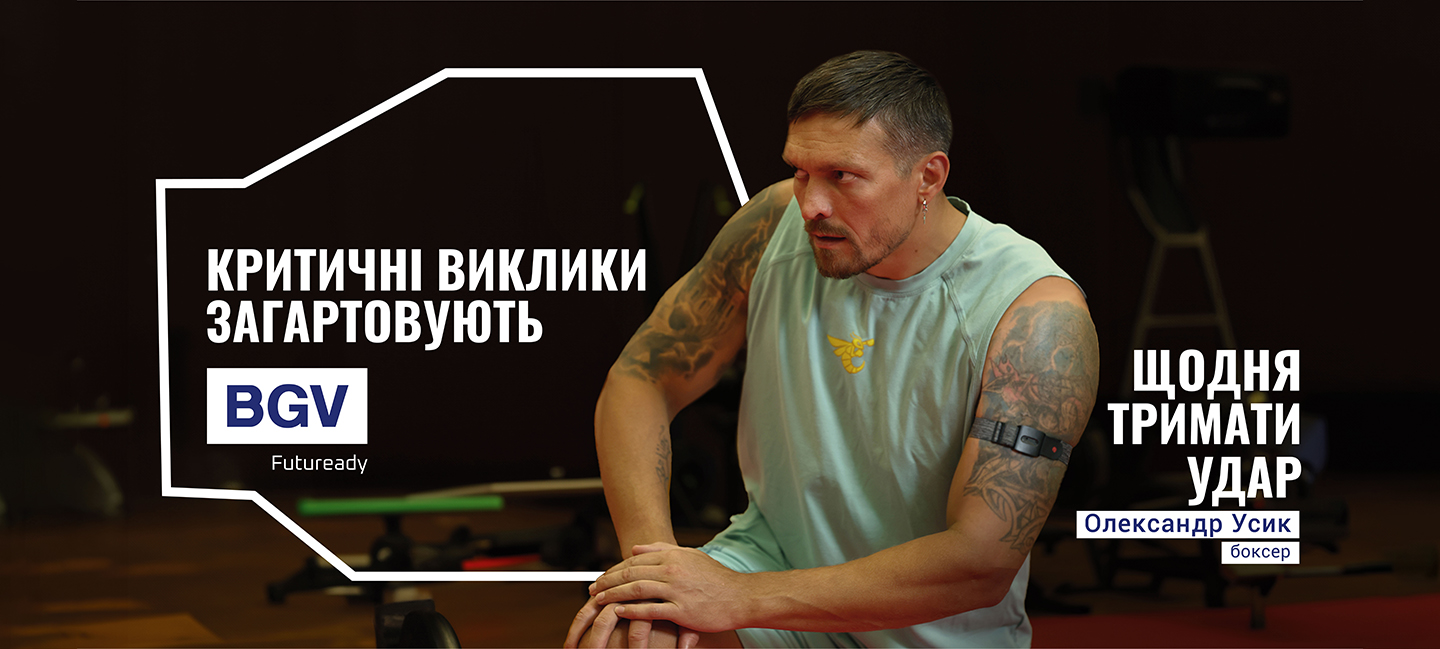BGV Group Management. Critical challenges make you tough
Critical challenges make you tough
- Home
- Critical challenges make you tough
On December 21, a landmark event for all Ukrainians will take place: the rematch between Oleksandr Usyk and Tyson Fury for the WBC, WBA, WBO, and IBO world heavyweight titles. And BGV is honored to be the main partner of this fight.
We want everyone to remember that critical challenges strengthen us, and stories of courage and resilience accompany us everywhere: on the battlefield, in the ring, in mines, or when meeting a new life. These are the stories we want to share with you. We spoke with real heroes about their personal challenges, which may inspire you.
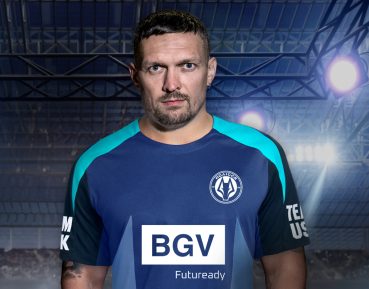
Alexander Usyk
boxer
"Diamonds are forged under immense pressure and extreme heat. They are then polished to become true gems. You won’t find real diamonds where things come easy. Success cannot be achieved without hard work.
When I step into the ring, I always fight against my own limitations first and foremost. My toughest opponent is myself. It’s my inner voice that says, ‘Stop, take a break! You’ve already accomplished so much.’ And I respond, ‘Shut up! I don’t know you!’”
Challenges that inspire
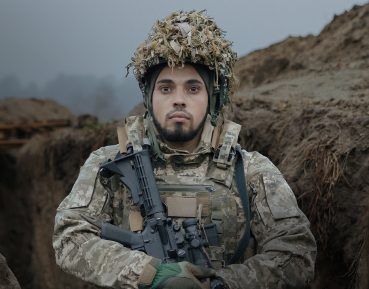
Elemir
Serviceman of the Air Assault Forces
"For me, as a serviceman, the challenge is to maintain physical fitness and intellectual development. No matter how hard it gets, I strive to stay active because, if a comrade gets injured, it will be difficult to evacuate him from the battlefield without proper preparation. The enemy has many advantages, so we must deceive and outsmart them. To do this, continuous learning and intellectual growth are essential.”
Tell us a little about yourself.
Before joining the army, I studied to become an electric and gas welder. Later, I worked abroad, and when I returned, I received my military summons. I went to the army. In 2019, I joined the military for compulsory service, and by 2020, I had fallen in love with the army — I signed a contract. You could say the army drew me in.
What does your work involve?
We train future officers who serve in combat brigades. They join us as sergeants, and after graduation, they are commissioned as junior lieutenants.
It’s tough for the guys to study because there’s so much information for them to absorb, but I motivate them by reminding them that, in the future, they’ll be leading their own units. They need to understand that every soldier deserves the best leadership. If a commander leads by example — showing how to storm a trench, a forest position, or throw grenades properly — it inspires the cadets.
I understand that we are at war now. War brings tremendous consequences, but amidst these challenges, we must learn. The enemy is learning, and so are we. But I know that, in the end, victory will be ours.
We all know this is a war of technology. FPV drones cause significant damage to personnel and equipment. It’s crucial to understand that if a unit needs to storm a particular position, we activate electronic warfare systems as they approach the area. This ensures the safety of the soldiers by jamming enemy drones.
Ultimately, everything depends on how well-trained the servicemen are. When under fire, facing incoming shells, it’s terrifying. But people rely on the skills they gained in training centers.
Similarly, when future officers come to us with combat experience, we teach them how to lead units, execute missions correctly, and fully understand and carry out combat orders.
In the future, once they are trained, I am confident they will be able to train their personnel effectively.
War is undoubtedly challenging. What motivates you to overcome difficulties?
Motivation is personal for every serviceman, but it’s the duty of squad leaders to monitor morale and help their troops understand that fear is not insurmountable.
True fear comes when you are left without anyone, when, God forbid, your family is gone. Fear is when the enemy invades your land and takes over the home you built. That’s real fear. Our mission is to prevent this from happening.
Each of us has something to lose. My wife and young child are waiting for me at home. I want to give my child everything my parents gave me.
During combat missions, I’m motivated by my comrades, in whom I have complete confidence. Even if I get injured, I know they’ll get me out.
What challenges do you set for yourself?
For me, as a serviceman, the challenge is to maintain physical fitness and intellectual development. No matter how hard it gets, I strive to stay active because, if a comrade gets injured, it will be difficult to evacuate him from the battlefield without proper preparation.
The enemy has many advantages, so we must deceive and outsmart them. To do this, continuous learning and intellectual growth are essential.
Before the full-scale war, I had a goal — I dreamed of opening a coffee shop. My wife and I were working toward that, but we couldn’t make it happen because COVID-19 hit Ukraine. Later, I wanted to buy a motorcycle, and we finally did.
Now my goal is to stay in shape to carry out combat missions. Yes, it’s scary and dangerous because fear can paralyze you, leaving you unsure of what to do. But when fear is present, you can conquer it and successfully complete your tasks.
You must set a goal and pursue it. It will be difficult, but you need to get up and keep going. You must learn to win.
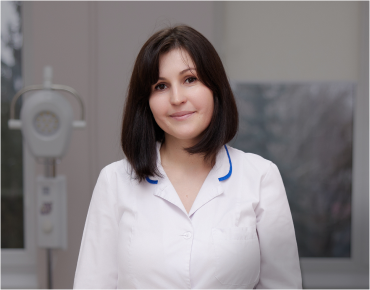
Yuliia
Obstetrician-Gynecologist, Hospital №1, Zhytomyr
"On the night of February 24, 2022, a baby was born, and the mother was still in the delivery room when we heard the first explosions. How did we react? With a kind of disbelief, you know. Of course, we felt a much greater sense of responsibility at that time. But I was amazed by our pregnant women — many people from other hospital wards were discharged home, regardless of their condition or how many days had passed since their surgeries; yet pregnant women, on the contrary, came to us. The thing is, many husbands had already been mobilized, and when women stayed in the hospital under medical supervision, they felt calmer for themselves and their babies’ health."
Why did you choose the profession of an obstetrician-gynecologist?
While studying at university, I was certain I would become an obstetrician-gynecologist. I don’t know why. It was just an internal drive. I’m grateful to my parents, who supported me, and to the circumstances.
Now, I am exactly who I wanted to be.
We studied all subjects and specialties little by little because you can’t focus on just one area and forget everything else. A person is a holistic organism. When something happens, you need to consider all the other organs, not just those in your area of responsibility. And yet, my desire to become an obstetrician-gynecologist never faded; it only grew stronger
Tell us about the challenges you faced at the beginning of the full-scale invasion.
On the night of February 24, 2022, a baby was born, and the mother was still in the delivery room when we heard the first explosions. How did we react? With a kind of disbelief, you know.
Of course, we felt a much greater sense of responsibility at that time.
But I was amazed by our pregnant women — many people from other hospital wards were discharged home, regardless of their condition or how many days had passed since their surgeries; yet pregnant women, on the contrary, came to us. The thing is, many husbands had already been mobilized, and when women stayed in the hospital under medical supervision, they felt calmer for themselves and their babies’ health.
What advice would you give to someone facing challenges today?
I would advise simply continuing to live in all the colors available to you right now. We can’t all be at the front. We have to support our soldiers all the time — through donations and emotional encouragement. But we also have to work to sustain our army.
We have only one life, and we must live it to the fullest, coming out of this stress. This chronic stress harms our health. That’s a fact.
So just live, have children — they are our future.
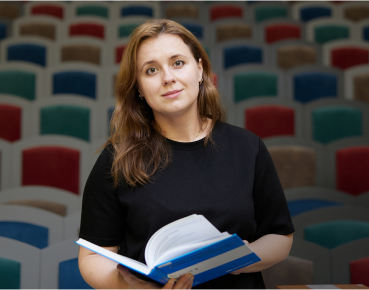
Oksana
Dean of Zhytomyr Polytechnic State University
"I am glad that I can create opportunities for those who aspire to achieve but may fear or struggle to recognize their potential. I provide them with these opportunities, sometimes presenting challenges, but in this way, I help build their resilience.”
Can you tell us more about the specifics of your work? What challenges do you face?
Our education is case-centered. We use real-life scenarios, analyzing them through the application of theoretical tools, techniques, and methods.
or instance, in the Psychology program, we invite professionals working with PTSD cases, complex situations, or veterans with various amputations. These practitioners share insights on how to approach such cases effectively and, most importantly, how to avoid causing harm.
The aim is for our graduates, upon completing their Bachelor’s or Master’s degrees, to avoid feeling disheartened, devalued, or unsure of their path. The knowledge is there, but practical skills are often missing. The goal is to ensure that graduates possess high-quality knowledge and practical skills.
While we don’t lack personnel, there’s a shortage of high-quality professionals. Our focus is on shaping specialists who will be in demand and sought after.
For a student to find their niche in the labor market is, in itself, an example of resilience. We live in a fast-changing society marked by intense competition.
Can you share more about your projects?
We run several centers, including the Veterans’ Development Center. They are diverse but all aim at restoration, helping others, teaching students properly, providing high-quality knowledge, developing skills, and preparing them to perform their professional duties effectively here and now.
One of our most active projects is the PsyLab Center for Social and Psychological Support. Students and even faculty members can anonymously register on the project’s website and schedule consultations.
Currently, we have several full-time psychologists because the demand has, unfortunately, grown significantly. Where we used to provide 6–8 consultations per week, now it’s 4–6 consultations per day per psychologist. This shows how much the need for psychological support has increased, and the issues brought up vary widely.
Why are we doing this? To gather data and attempt to prevent crises before they occur. It is very difficult to help someone out of critical states—it is better to prevent them.
Do you have any specific goals?
I used to plan 3–5 years ahead, but now it is difficult to plan anything. Not because of threats, concerns, or fears, but because everything is very fluid. In this case, flexibility may be considered a manifestation of resilience..
For me, the ultimate goal has always been harmony. Honestly!
I mean inner harmony, where I can talk calmly and enjoy a cup of coffee without feeling an internal rush. That, in itself, is my goal. It represents a balance that is almost always unattainable.
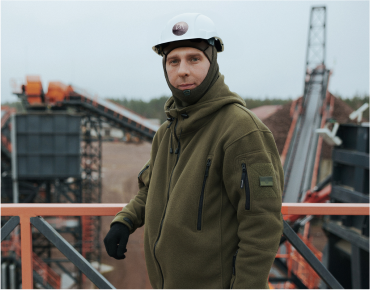
Maksym
Mechanic at the Gravel Plant "Granite Quarry LCC"
"In February 2022, we had no Poland, no England, no France, no training grounds. Back then, no one was being trained — there was just the brigade, weapons, ammunition, and off we went. The first words my sergeant said to me after arriving at the front were, ‘We must hold on.’ What motivated me back then? The guys who served alongside me. After my service, I returned to work at the granite quarry."
What does your job involve?
It’s about maintaining crushing and sorting equipment. Calculating the best way to carry out repairs, selecting the necessary materials, finding optimal solutions — all of this needs to be considered and then quickly implemented.
You could even say my job is creative.
Here, you can combine different approaches and come up with ways to solve problems.
There’s always some complexity: reducing costs, encountering an unusual technical issue that requires a creative approach.
Tell us about your service at the start of the full-scale invasion.
On February 24, I immediately went to the military enlistment office. For about a month and a half, I served in a security company in Korosten. Another month and a half later, a friend and I submitted a request, and we were transferred to a combat unit — the 30th Separate Mechanized Brigade, where my combat path began — in Donbas, at the Svitlodarsk Bulge.
We had no Poland, no England, no France, no training grounds. Back then, no one was being trained — there was just the brigade, weapons, ammunition, and off we went. The first words my sergeant said to me after arriving at the front were, ‘We must hold on.’ And we held them back there!
After my service, I returned to work at the granite quarry.
What motivated you most during your service? And what motivates you now?
What motivated me back then? The guys who served alongside me.
We had a platoon doctor, Yaroslav, a 41-year-old surgeon. He was originally from Donetsk. When we arrived in the Donetsk region, he said, “I’ve come to my land to defend it.” That’s the kind of guys we had there!
Now, the main thing is to provide my home with warmth and light so that my child doesn’t get sick. That’s my challenge.
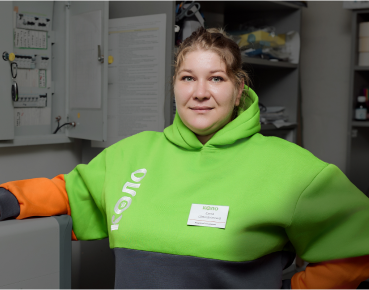
Iryna
Manager of the retail store “Kolo”
"Even on my day off, if I see in the morning that missiles have been launched, I know I need to call a taxi and go to the store. My goal is to support the salesperson because it’s very difficult to manage alone under such conditions. Before opening, I need to prepare baked goods and get the store ready for the influx of visitors. Since our store is located near a shelter, people come to warm up, have tea, and grab a snack while staying in a safe place."
Tell us about your typical day at work.
Running, running, and more running! We face a heavy workload, as baked goods are in high demand, and our store alone serves over 1,000 people daily.
When an air raid siren goes off, the number of visitors significantly increases because the store is near a shelter. That’s why we open even earlier, so people have the chance to enjoy a hot drink and a snack. This helps them feel more comfortable during their time in the shelter and reduces their anxiety. Our goal is to do everything possible to support people in difficult moments.
What challenges do you face as a retail worker?
Even on my day off, if I see in the morning that missiles have been launched, I know I need to call a taxi and go to the store. My goal is to support the salesperson because it’s very difficult to manage alone under such conditions. Before opening, I need to prepare baked goods and get "Kolo" ready for the large influx of visitors. Since our store is located near a shelter, people come to warm up, have tea, and grab a snack while staying in a safe place.
We put our hearts into our work every single day!
"Kolo" is a "corner store" format. So, we looked for a solution to ensure the network could function during constant power outages while being convenient for residents of apartment complexes and offices where we operate. The company decided to invest in silent generators. Our employees quickly learned how to use the switches and skillfully keep the equipment running. This was done to ensure that there are always fresh baked goods in the morning, and visitors can feel warmth and comfort, which helps reduce stress in challenging circumstances.
What motivates you? What do you believe in?
I believe in victory! That’s the most important thing, and I’m confident we will achieve it.
Since 2015, BGV Group Management has been investing in the extraction and deposits of rare, critically important minerals.
Our goal is to gradually unlock the potential of the country and contribute to transforming Ukraine’s economy from a resource-oriented one to an economy focused on the production of finished goods.
In 2022, the BGV Charity Fund was established to support children and families with children, create and promote educational initiatives and projects in the field of psycho-emotional health, and support the Armed Forces of Ukraine during the full-scale invasion.
All of this is made possible by caring individuals who, despite any challenges, keep moving forward.
Since 2015, BGV Group Management has been investing in the extraction and deposits of rare, critically important minerals.
Our goal is to gradually unlock the potential of the country and contribute to transforming Ukraine’s economy from a resource-oriented one to an economy focused on the production of finished goods.
In 2022, the BGV Charity Fund was established to support children and families with children, create and promote educational initiatives and projects in the field of psycho-emotional health, and support the Armed Forces of Ukraine during the full-scale invasion.
All of this is made possible by caring individuals who, despite any challenges, keep moving forward.

We do our part. Daily.
For the future!









































